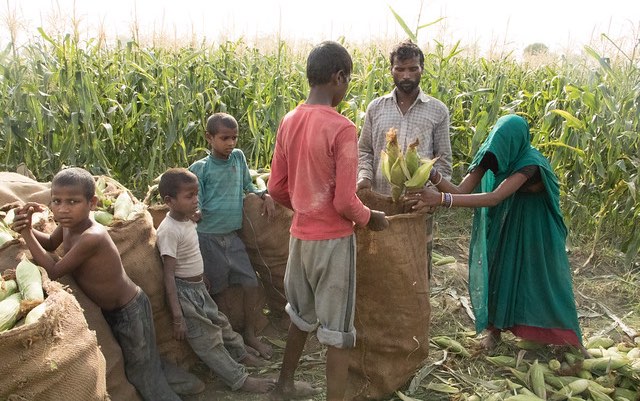The amount of food loss and waste in supply chains is significant. The most widely cited estimate, by the UN Food and Agriculture Organization (FAO), is that as much as one third of total usable global food production is not consumed. However, this is a very crude estimate based on few case studies. IFPRI’s research on food loss suggests that the physical quantities lost during pre- and post-harvest stages (up to the retail level) appear much less than FAO’s figure.
IFPRI Markets, Trade, and Institutions Division (MTID) Director Rob Vos discussed these findings, along with the complexities of measuring food loss and identifying its causes and consequences, in a workshop presentation included in the recent publication Reducing Impacts of Food Loss and Waste: Proceedings of a Workshop (2019) by the National Academies of Sciences, Engineering, and Medicine.
Based on a new survey approach to measure quantity and quality losses along food value chains, evidence from Ecuador, Peru, Guatemala, Honduras, Ethiopia, and China shows that food losses in potato, maize, beans, teff, and wheat value chains range from 6% to 25% of total production. Most losses (60%-80%) occur at the farm level. Loss of quality is often more important than quantitative loss, evidence shows. Causes of losses vary by crop, context, and stage in the value chain, but common factors relate to bad weather; poor knowledge of how to avoid pests and plagues; poor technology; poor infrastructure for storage, transportation and processing; and low and volatile prices.
Lack of sufficient labor or high labor costs may be an important reason that farmers don’t harvest all of the crop on the field, especially when market prices are low.
Clearly, the losses in food quality and economic value are significant in developing countries. Food loss in production, trade and processing tends to outweigh food waste occurring at the retail and consumer stages of the supply chain. The factors outlined in the surveys are important to take into account when looking at the impacts or benefits of preventing food losses at the farm level and other stages of the value chain.
Generally, better market access and price stability would help prevent food losses at the producer level. This in turn will depend on other parts of the food chain functioning properly, meaning improvements in handling, storage, transportation, and processing capacity. Food loss reduction and prevention require action “across the value chain and not just at the farm level,” Vos adds. A holistic approach addressing the causes of food loss, along with the economic opportunity cost of such losses to farmers and other actors in the value chain, is thus essential for policy research.
Swati Malhotra is a Communications Specialist with IFPRI’s Markets, Trade, and Institutions Division.







